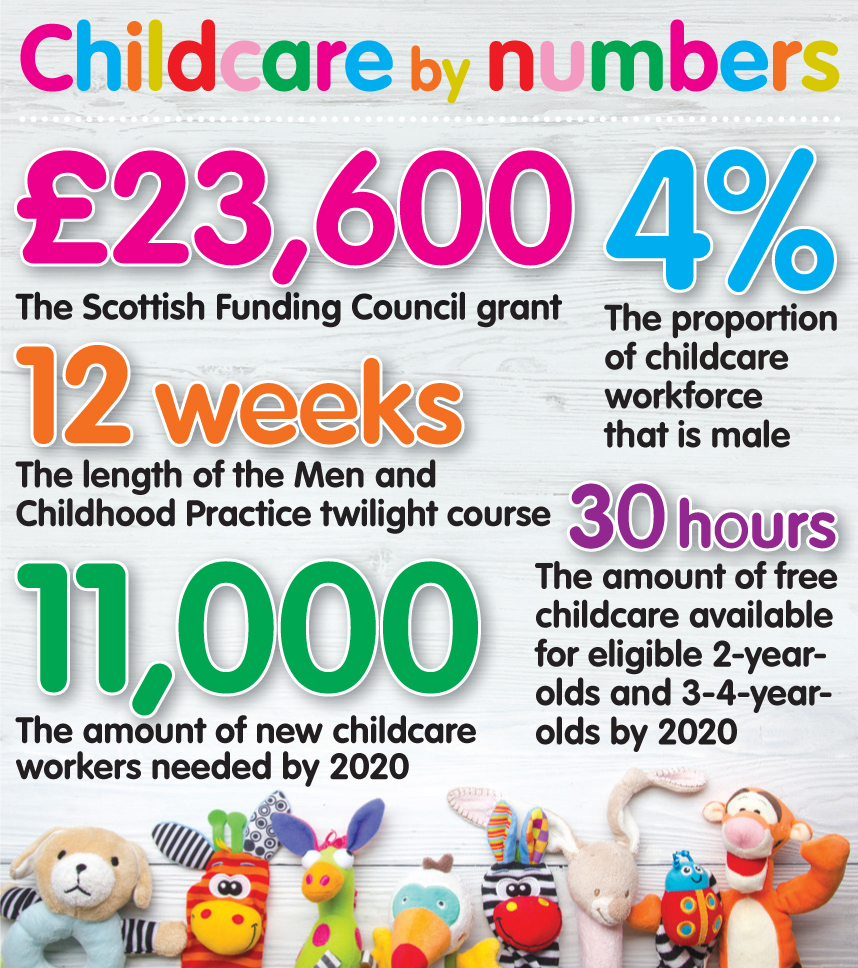The north’s university is pioneering a fast-track childcare course aimed specifically at men in a stereotype-busting move.
The move comes as the Scottish Government frantically works to meet the demands of Early Learning and Childcare services at a time when the profession is facing a skills shortage.
Around 11,000 childcare workers are required if the Scottish Government is to meet its pledge of providing 1,140 hours per year of funded childcare by 2020.
Heather Keyes, head of the care practice curriculum at Inverness College UHI, said: “We have seen an increase in the number of males choosing to study early years or childcare, and we know from surveys we’ve carried out that perceptions are changing.
>> Keep up to date with the latest news with The P&J newsletter
“However, we recognise there’s much more work to be done to ensure Scotland’s nurseries and schools are diverse and gender balanced.”
Over £23,500 has been secured from the Men in Early Years Challenge Fund to finance the 12-week course in a bid to address the gender imbalance as currently, only four per cent of the childcare workforce in Scotland is male.
Ms Keyes added: “This isn’t just about meeting a government target. There’s a huge amount of research that shows role models of both genders are critical in early years, and that men bring different skills and approaches to learning, which is important for child development.”
The fast-track Men and Childhood Practice provides an entry pathway to the University of the Highlands and Islands (UHI) childcare qualifications, with those who complete the course guaranteed an interview for the HNC Childcare course, set to begin in August.

Nineteen-year-old Fraser Polworth from Inverness is currently studying on the HNC course after deviating from studying business when he discovered that career path wasn’t for him.
He said: “What I love about childcare is the balance between challenge and reward. You are a role model for the children you look after and have an important job in terms of influencing their development – from showing them how to respect others, to encouraging their confidence and helping them overcome barriers.
“We need to move away from the idea it’s just like babysitting, the career deserves so much more respect. It takes patience and understanding but it is one of the most rewarding and meaningful jobs you could choose. Gender isn’t a defining characteristic in the workplace and for every person that stereotypes you, there will be others who respect, encourage and support you for the admirable work you do.”
